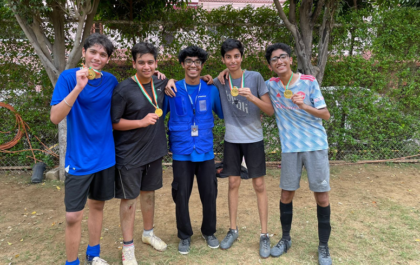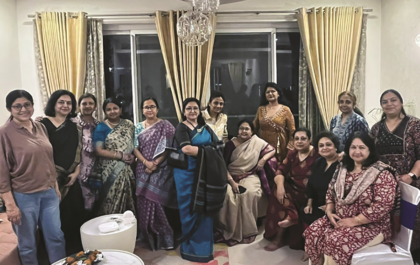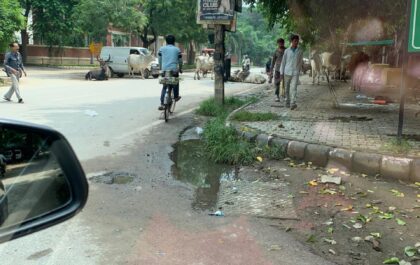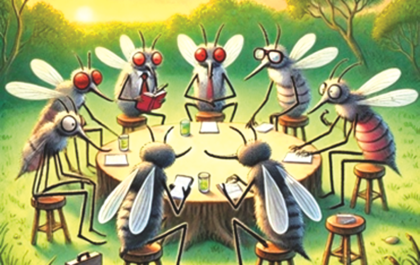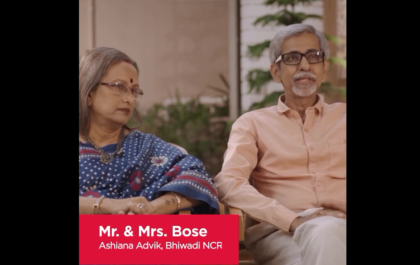After watching the movie Shrikant, I realised that an awareness campaign around visual impairment and who a visually impaired is and why they crave for empathy and no sympathy is long pending in our Safdarjung enclave, in our city of Delhi and across the length and breadth of our country.
Whether it was him getting trapped on a traffic crossing with no one ready to stop, on the verge of running over him and honking from all directions or being asked to beg or being treated as either god or a curse (on both ends of the social spectrum), Shrikant’s journey partially or fully represents every differently abled’s life in India. Rajkummar Rao plays Shrikant Bollant’s role tactfully and brings out every facet of a visually impaired life with utmost perfection showing that much-awaited mirror to the society. The movie is a fine attempt to remove all the myths around disability and perceptions formed by us about blind people. As a social worker, it was not a shock to me when Shrikant calls himself “kachara”. Having worked in this disability space for more than a decade and mentored many visually impaired for more than a decade now, I had seen and heard most of it. When Shrikant openly raises his dissent for being served sub-standard food, I am reminded of a hostel in Delhi where the owner literally lives on the money raised for visually impaired and makes them live in dilapidated conditions. This also reminds me of autistic children being tied inside a room in many schools across India and then released when its closing time! Shrikant is thrown out for speaking the truth, he is not given science as blind cannot study it as per our education system, he cannot raise funds or should not get an investment because how can a blind do business or run a factory and the list goes on.
Most visually impaired in our country like many other people with disabilities give up at a very early age because there is nothing in the system which favours them. Everything is against them. They have to fight all possible odds and that’s when they feel that it’s better to live on the system rather than change the system. The film also brings out the arrogance which finds its way into Shrikant after he becomes a successful entrepreneur. While this should be studied in psychology but my personal experience is quite vivid. Having seen so much turbulence in their lives with no light at the end of the dark tunnel, success comes after loads of mental trauma.
One cannot trust the same very people who as a part of the entire society treat them as a curse and always pull them down because they never believe that a person without sight can ever succeed in anything in life! Living in extreme uncertainty and distrust, success comes in a vicious package. Shrikant turns self-centered, egoistic and wants to take all the possible shortcuts to grow fast without realising that the ladder to business success is quite similar for all human beings and there are simply no shortcuts. That’s one of the biggest learning for the differently abled – they can fight and get equal opportunity but cannot demand differential treatment. They will have to fight like anyone else to grow in their respective careers. Visually impaired have defied all the myths, sighted people have had about them. These myths and taboos exist in the society because we have been mentally blind for centuries and now it’s time we unfreeze our vision. After a very long wait a film finally brings out the struggles of differently abled (focused on visually impaired) and ensures that all their pain areas are mapped and depicted with utmost clarity. Long back I had mapped some myth busters to create awareness across India. The film manages to cover most of them with precision. a. Yes, they can have sex! b. Yes, they can talk and message on mobiles. Faster than visually abled! c. Yes, they can click photos with latest technology. If you have not seen those clicking selfies with all the beautiful girls in town, please open your eyes! d. Yes, they can work in the kitchen as well as in offices e. Yes, they don’t need electricity for lighting their rooms. Yes, they also buy condoms and other groceries g. Yes, they also read, write and go to school h. Yes, they also study at top universities like Stanford i. Yes, they also cycle on a predefined path j. Yes, they also jump walls post-midnight and order food requesting restaurants to deliver at 3 am in the morning! k. Yes, they also enjoy a drink and play cricket/football, running, swimming and so many other sports. Let’s see what they see and show them what we see!
(Jeevesh Gupta is the co-author of a recently released book on environment and Climate Change titled “A GREEN DAY” published by Hachette India)
Popular Stories
Football Tournament @Princeton
More Than a Festival: The Art and Power of Durga Puja
Personality of the Month- ‘Dr Usha Mediratta’
Stray Cattle Menace In Front of Galleria
The Chronicles of Malibu Towne: A Mosquito’s Tale
“Senior Living Is Not An Old Age Home” say Mr & Mrs Bose
Recent Stories from Nearby
- सनसिटी में धमाकेदार माह अक्तूबर झलकियां November 7, 2024
- ‘Suncity is like Kashmir’ November 7, 2024
- Suncity Township Celebrates Enhanced Water Resilience: A Leap Towards Seamless Living November 7, 2024
- Residents Should Stay Alert, Stay Safe November 7, 2024
- Kitchen Waste in Suncity is Transformed into Electricity November 7, 2024

